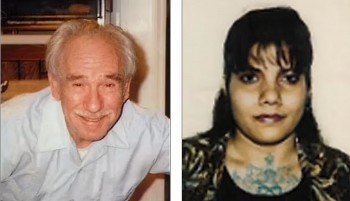List of 15 Death Row Inmates Commuted by North Carolina Gov. Cooper
 Full List of 37 Death Row Commutations And Who Was Not Commuted? Full List of 37 Death Row Commutations And Who Was Not Commuted? Out of the 40 federal inmates sentenced to death, President Biden has granted clemency to 37 of them. Their death sentences have been commuted to ... |
 |
| Hassan Bacote, a black man who was sentenced to death in Johnston County |
This move, described as a historic step by civil rights organizations, highlights the complex interplay between justice, racial bias, and the death penalty in the state.
A Landmark Decision
Governor Cooper, in a public statement, explained that the decision to commute the sentences was not made lightly. “These reviews are among the most difficult decisions a Governor can make, and the death penalty is the most severe sentence that the state can impose,” he stated. After an extensive review process, Cooper concluded that these 15 cases warranted clemency. Factors considered included the potential influence of racial bias on jury composition and sentencing outcomes, though Cooper emphasized that no single factor was determinative.
The decision has drawn praise from advocacy groups like the ACLU, the Legal Defense Fund, and the Center for Death Penalty Litigation. Cassandra Stubbs, director of the ACLU’s Capital Punishment Project, remarked, “This decision is a historic step towards ending the death penalty in North Carolina.”
The Case of Hasson Bacote
One of the most notable cases among the 15 is that of Hasson Bacote, a Black man sentenced to death in 2009. Bacote’s legal team leveraged the Racial Justice Act of 2009, a groundbreaking law allowing inmates to challenge their sentences if racial bias played a role. Although the law was repealed in 2013, the North Carolina Supreme Court ruled in 2020 that cases already filed under the Act could proceed.
In Bacote’s case, evidence presented in court revealed systemic racial bias. Historians and social scientists testified that prosecutors in Johnston County, where Bacote was tried, were disproportionately likely to exclude Black jurors. Moreover, data suggested that Black defendants in the county were more likely to face the death penalty than their white counterparts. These findings underscored the racial disparities embedded in the justice system, lending weight to Bacote’s appeal.
Full ist of 15 Death Row Inmates
-
Hasson Bacote:
- Age: 38
- Conviction: First-degree murder in Johnston County, 2009.
- Case Details: Bacote, a Black man, was sentenced to death by a jury comprising ten white and two Black jurors. He challenged his sentence under the Racial Justice Act, citing racial bias in jury selection and sentencing.
-
Iziah Barden:
- Age: 67
- Conviction: First-degree murder in Sampson County, 1999.
- Case Details: Barden was convicted of murder during a robbery. Details about racial bias or other mitigating factors in his case are limited.
-
Nathan Bowie:
- Age: 53
- Conviction: First-degree murder in Catawba County, 1993.
- Case Details: Bowie was convicted of a fatal shooting during a drug-related incident. Information on appeals or claims of bias is not readily available.
-
Rayford Burke:
- Age: 66
- Conviction: First-degree murder in Iredell County, 1993.
- Case Details: Burke was convicted of shooting a man over a drug dispute. His case has been noted for potential issues regarding legal representation.
-
Elrico Fowler:
- Age: 49
- Conviction: First-degree murder in Mecklenburg County, 1997.
- Case Details: Fowler was convicted of a double homicide. Concerns were raised about the adequacy of his defense during the trial.
-
Cerron Hooks:
- Age: 46
- Conviction: First-degree murder in Forsyth County, 2000.
- Case Details: Hooks was involved in a fatal shooting during a home invasion. Issues regarding jury selection and potential racial bias were highlighted in appeals.
-
Guy LeGrande:
- Age: 65
- Conviction: First-degree murder in Stanly County, 1996.
- Case Details: LeGrande, a Black man, was convicted of murdering a white woman. He represented himself during the trial despite evident mental health issues, raising concerns about his competency and the fairness of the trial.
-
James Little:
- Age: 38
- Conviction: First-degree murder in Forsyth County, 2008.
- Case Details: Little was convicted of a gang-related shooting. His appeals cited inadequate legal representation and questions about the reliability of witness testimonies.
-
Robbie Locklear:
- Age: 52
- Conviction: First-degree murder in Robeson County, 1996.
- Case Details: Locklear, a Native American, was convicted in a county with a history of racial tensions. His case drew attention to potential racial biases in jury selection and sentencing.
-
Lawrence Peterson:
- Age: 55
- Conviction: First-degree murder in Richmond County, 1996.
- Case Details: Peterson was convicted of a fatal shooting during a robbery. Appeals focused on possible prosecutorial misconduct and ineffective assistance of counsel.
-
William Robinson:
- Age: 41
- Conviction: First-degree murder in Stanly County, 2011.
- Case Details: Robinson was involved in a domestic dispute leading to a fatality. His case raised questions about mental health evaluations and the appropriateness of the death penalty.
-
Christopher Roseboro:
- Age: 60
- Conviction: First-degree murder in Gaston County, 1997.
- Case Details: Roseboro was convicted of murdering an elderly woman during a burglary. Issues regarding racial bias in jury selection were noted in his appeals.
-
Darrell Strickland:
- Age: 66
- Conviction: First-degree murder in Union County, 1995.
- Case Details: Strickland was involved in a fatal shooting linked to a robbery. His defense argued that he had limited intellectual capabilities, which were not adequately considered during sentencing.
-
Timothy White:
- Age: 47
- Conviction: First-degree murder in Forsyth County, 2000.
- Case Details: White was convicted of a shooting during a drug deal. Appeals highlighted potential racial bias and ineffective legal representation.
-
Vincent Wooten:
- Age: 52
- Conviction: First-degree murder in Pitt County, 1994.
- Case Details: Wooten was involved in a fatal stabbing. His case brought up issues of racial disparities in sentencing and questions about the fairness of his trial.
Broader Implications
Governor Cooper’s decision comes amidst growing national and state-level scrutiny of the death penalty. While North Carolina has not executed anyone since 2006, the state still has over 100 inmates on death row. Death penalty opponents have called for broader reforms, urging a complete abolition of the practice.
The Racial Justice Act, though repealed, continues to influence legal discourse in North Carolina. Many inmates on death row filed appeals under the Act, challenging the fairness of their trials. Bacote’s case exemplifies the Act’s impact, even years after its repeal. The North Carolina Supreme Court’s ruling to allow such cases to proceed underscores the judiciary’s acknowledgment of systemic issues.
A Divided Legacy
The decision to commute these sentences has sparked both praise and criticism. Advocates argue that it addresses deep-seated inequities in the justice system. However, opponents contend that clemency undermines the original jury verdicts and could erode public trust in the legal process.
Governor-elect Josh Stein, a Democrat, inherits this complex legacy. As attorney general, Stein’s office had sought to delay Bacote’s hearing, arguing that claims of racial discrimination required substantial proof. His stance as governor on the death penalty and related reforms remains to be seen.
Moving Forward
Governor Cooper’s actions mark a pivotal moment in North Carolina’s justice system, reflecting broader national debates on the morality, efficacy, and equity of the death penalty. While these commutations provide relief to the 15 inmates, they also spotlight the need for systemic change. Advocates continue to call for an end to the death penalty, citing cases like Bacote’s as evidence of its flawed application.
As North Carolina and the nation grapple with these issues, Cooper’s decision may be remembered as a step towards justice, but also as a reminder of the challenges that remain in ensuring fairness and equity within the legal system.
 The JonBenét Ramsey Murder: New Evidence, Mysterious Ransom Note, and Developments The JonBenét Ramsey Murder: New Evidence, Mysterious Ransom Note, and Developments JonBenét Ramsey murder case: KnowInsiders examines the latest developments in the case, newly uncovered evidence, and the significance of the ransom note in the ongoing ... |
 Who is Patty Morin: The tragic loss that turned a mother into an advocate Who is Patty Morin: The tragic loss that turned a mother into an advocate President-elect Donald Trump's closing remarks at AmericaFest 2024 included an emotional moment when he invited a grieving mom named Patricia "Patty" Morin to come on ... |
 Who is Drew Johnson: Captures Escaped Inmate in South Mississippi Who is Drew Johnson: Captures Escaped Inmate in South Mississippi Johnson was apprehended Wednesday close to SMCI, according to the Mississippi Department of Corrections. On February 14, 2022, Johnson was found guilty of murder in ... |
 Who is Brianna Alvelo, Pizza Delivery Driver Stabs Pregnant Woman Over $2 Tip Who is Brianna Alvelo, Pizza Delivery Driver Stabs Pregnant Woman Over $2 Tip A shocking incident in Kissimmee, Florida, has left a pregnant woman recovering from multiple stab wounds after a brutal attack by a pizza delivery driver. |
 Who Killed NY Millionaire Archie Harris: 2 New Suspects for 1996 Unsolved Murder Who Killed NY Millionaire Archie Harris: 2 New Suspects for 1996 Unsolved Murder Nearly thirty years after a millionaire was discovered murdered in his home, a significant breakthrough has been made in one of New York's most infamous ... |


























